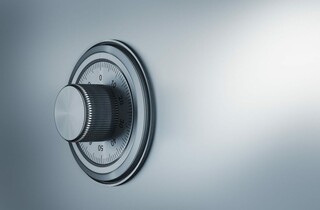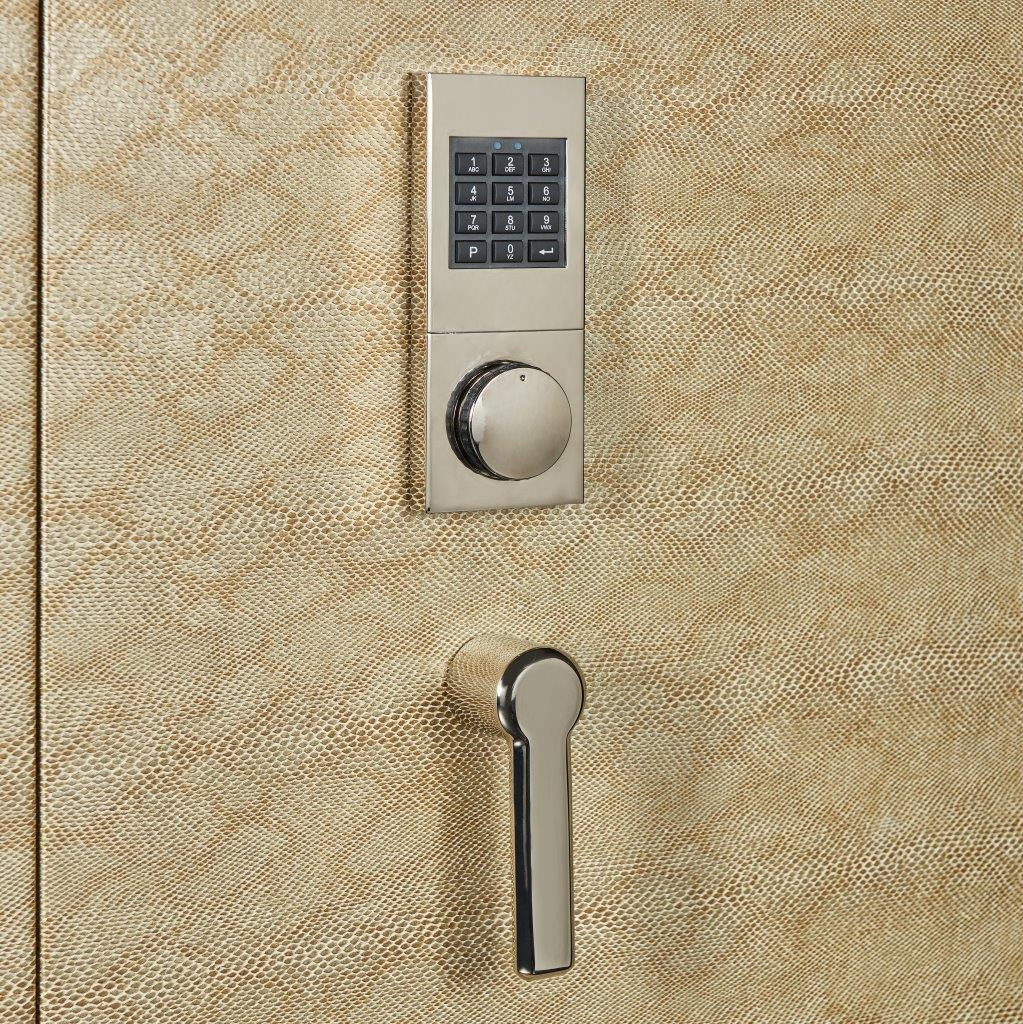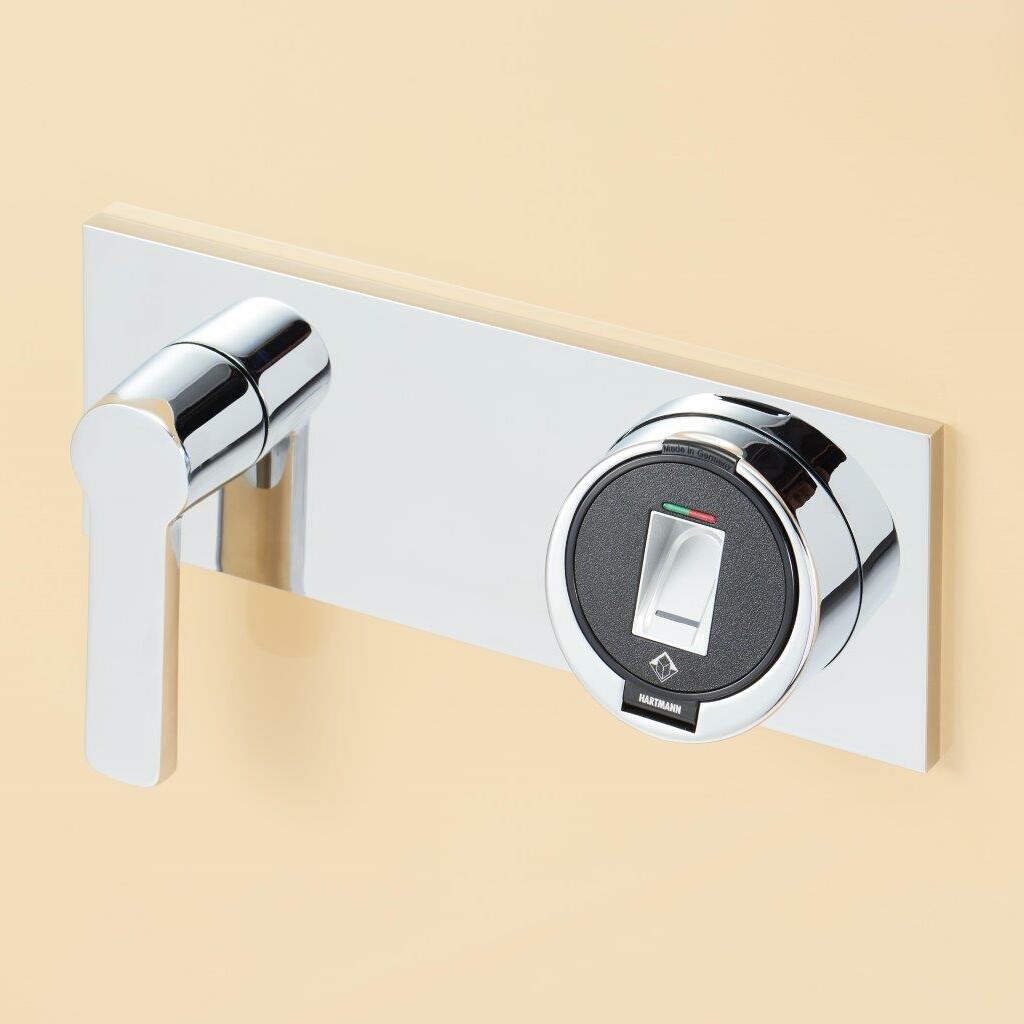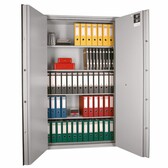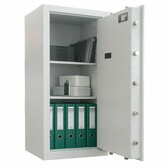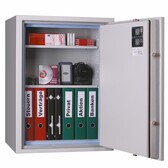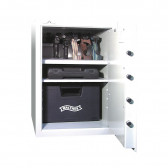A key lock, a code or perhaps a fingerprint? In what situations is a biometric lock better and when is a classic key lock a good solution?
Key locks
The most traditional type of lock, which requires a physical key to open the safe, is reliable, difficult to counterfeit (a thief has to get an imprint of the key to be able to forge it, and even this is not always enough) and fairly cheap. Unfortunately, it requires you to have the key with you (which can be lost or stolen). This is one of the most common types of locks used in office and company safes.
Digital mechanical locks
Familiar from the movies: "knobs" that thieves have to "listen to" in order to open. In practice, opening such locks is slightly more complicated than you might think. They are convenient to use – they do not require the use of a physical key, but you do need to remember the combination of digits and be very precise and focused when entering it. They are secure, as they do not require you to carry the key with you, and at the same time, the combination entered is more difficult to "suspect" than in electronic locks. They feature a certain convenience of use (the aforementioned lack of a physical key), but you have to memorise the number combination, as well as demonstrate great precision and concentration when entering it. Moreover, they are environmentally friendly, as they do not consume electricity and do not need batteries for powering. The combination locks are used in safes both in private homes and – somewhat less frequently – in companies. They are mainly suitable for patient people who will use the safe occasionally and without haste. For this reason, it is not recommended for a safe protecting weapons for personal defence.
Electronic locks
A convenient lock that does not require you to carry any key - you just need to remember the code to open it. The downside, however, is the high risk of the code being suspected by unauthorised persons – both with simple methods (such as a camera installed near the lock so that it can be seen when the code is entered) and slightly more specialist ones (examining fingerprints on the keys or checking the temperature of the keys after the code is entered). This type of lock also requires battery power, so you need to remember about its periodic replacement. Due to its ease of use and lack of need to carry a key, this type of lock is very popular in shop, office and hotel safes – also because it is easy to connect with the alarm system installed in the building.
The electronic lock also has a number of useful features, such as:
– silent alarm: this is triggered by a special code, and is useful in the event of a robbery if an intruder forces the user to open the safe. Yes, it will open, but at the same time the built-in relay will send a signal to the alarm system, which will summon the security company;
– audit of operations: an option in the more sophisticated electronic locks that allows operations to be recorded and read out – depending on the version – from a computer or from the lock (after entering the code);
– multi-user: the electronic lock usually allows access by password to several users. It allows from 2 to several hundred users to be defined, each with their own individual code.
It is worthwhile reading another text discussing the issues relevant to changing the code in a safe.
A special type of electronic locks are locks with a key in the form of a proximity card. Such a key can also be hidden in a bracelet or pendant. This is a great solution for people who do not want to remember the code combination and at the same time do not want to carry around a metal, heavy and inconvenient key. We describe the magnetic lock as a modern and comfortable solution for your flat and office in another article.
Biometric locks
A high level of security and convenience – by simply placing your finger, the system scans the fingerprint, compares it with the encoded pattern and opens the safe. Of course, a biometric lock must have a pattern entered into the system beforehand, which is why safes fitted with this type of lock work best where there is no need to frequently change the list of users. They are very often used in private homes (also because they are the best protection against family members or outsiders such as servants or cleaners).
Due to the lack of need for an additional key (either mechanical or electronic), they are also willingly used in companies, especially where a small group of people should have quick access to the safe. It is also worth noting that the biometric lock is an ecological lock, as it is powered by low current from the home network without the use of poisonous alkaline batteries.
Which is the best lock?
Given our many years of experience with safes, we can confidently say which products are the most popular choice and why. Most customers prefer to enter a PIN code instead of inconvenient keys. Opening the safe with a mechanical combination lock has its enthusiasts, but they can be counted on the fingers of one hand on an annual basis. Likewise with a biometric lock. Electronic code locks are the most common choice, but does that mean they are the best? They are certainly the easiest to use, the most intuitive and offer the most options, even for private users. However, the choice of lock, like the choice of the entire safe, depends only on individual needs and preferences.
In another text on our blog, we describe in more detail how to open various locks, i.e. how to open a safe.
